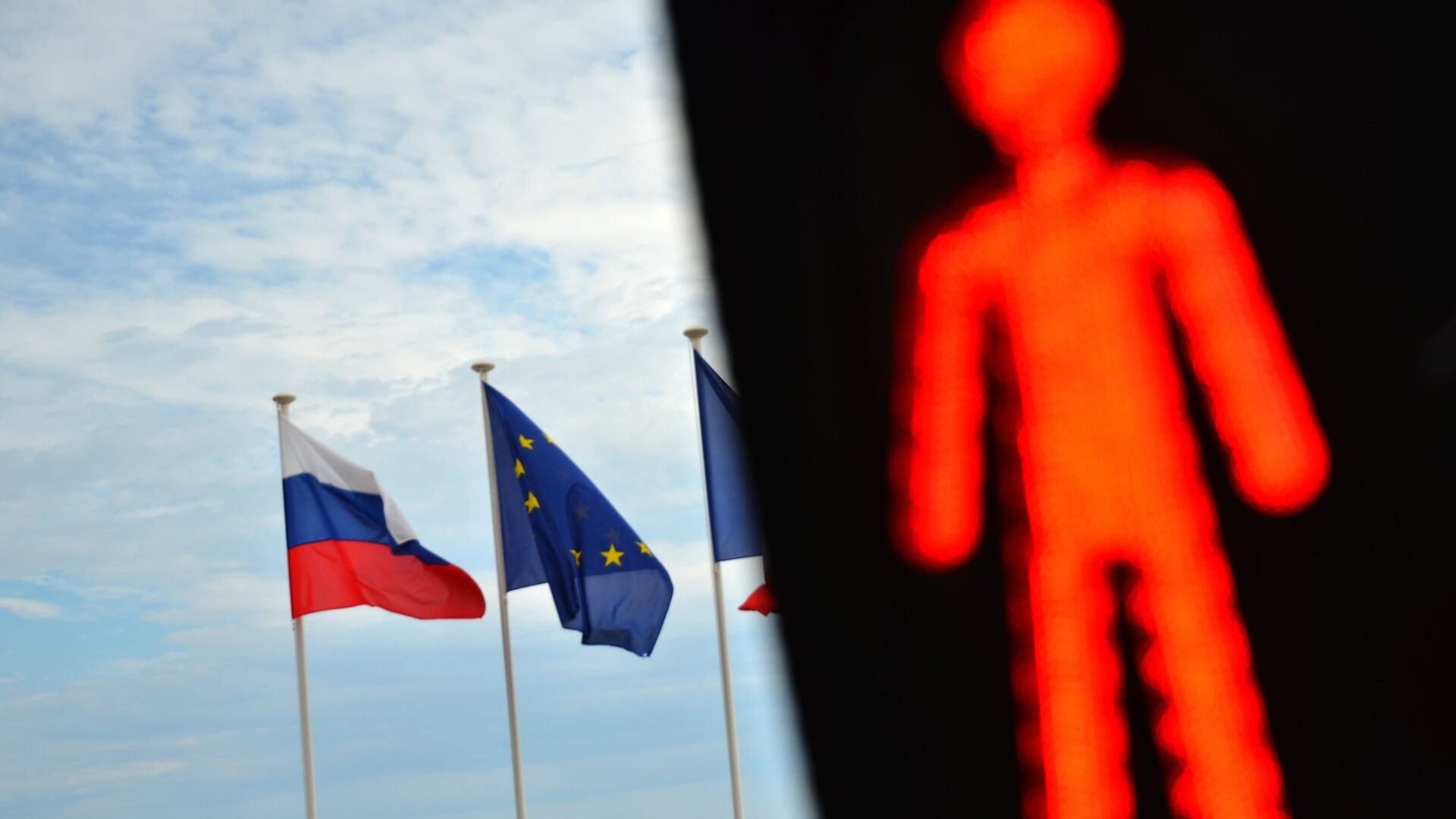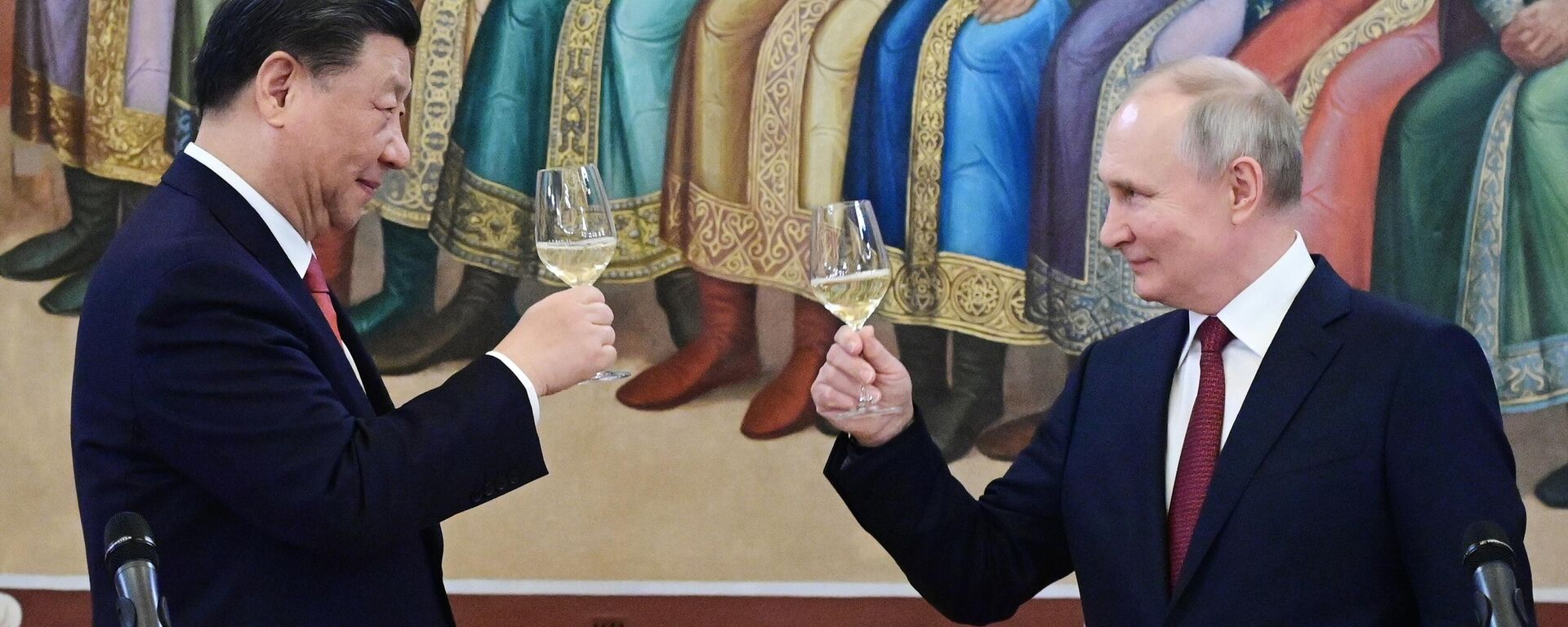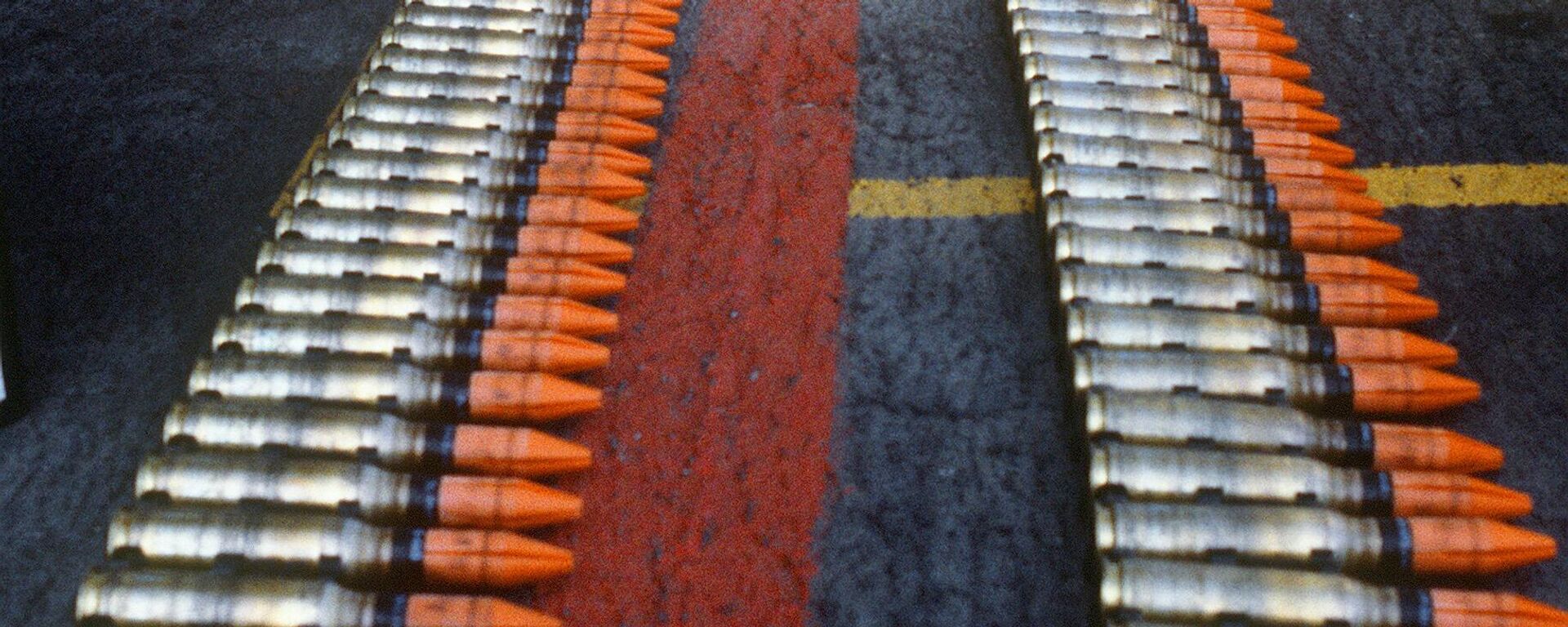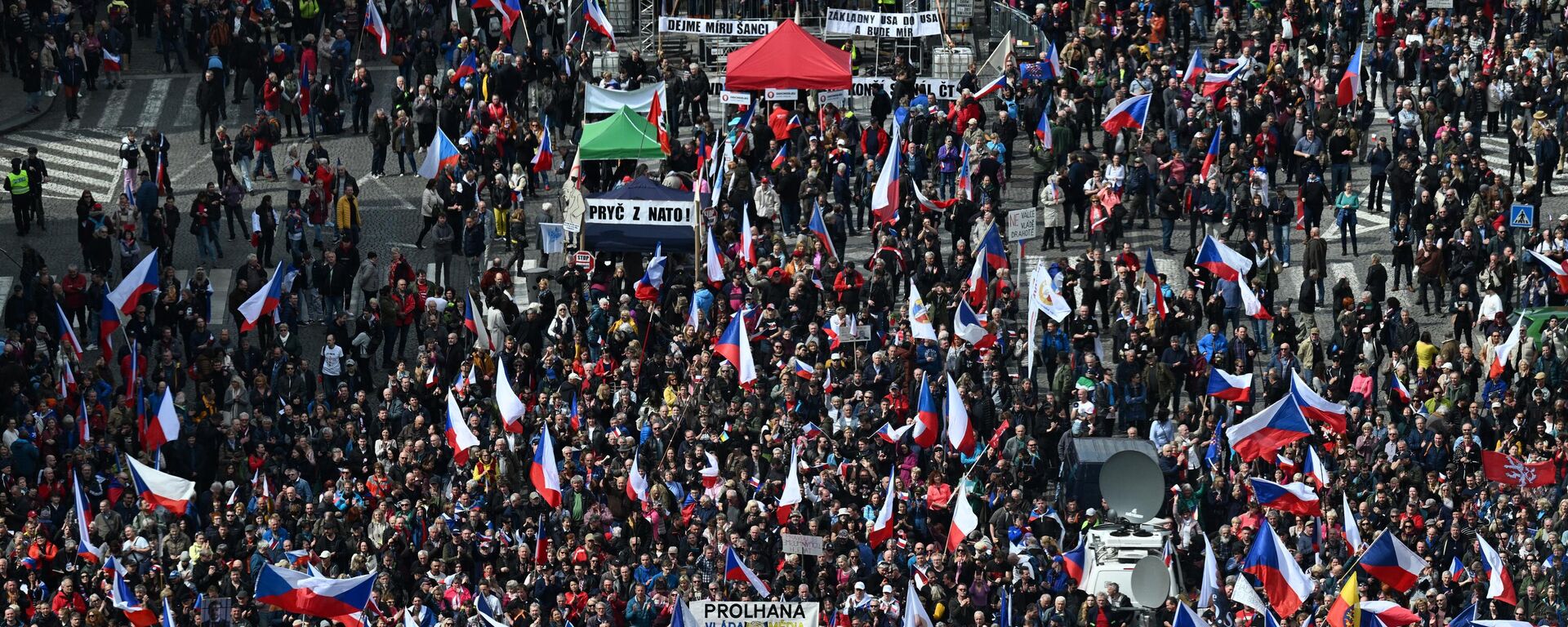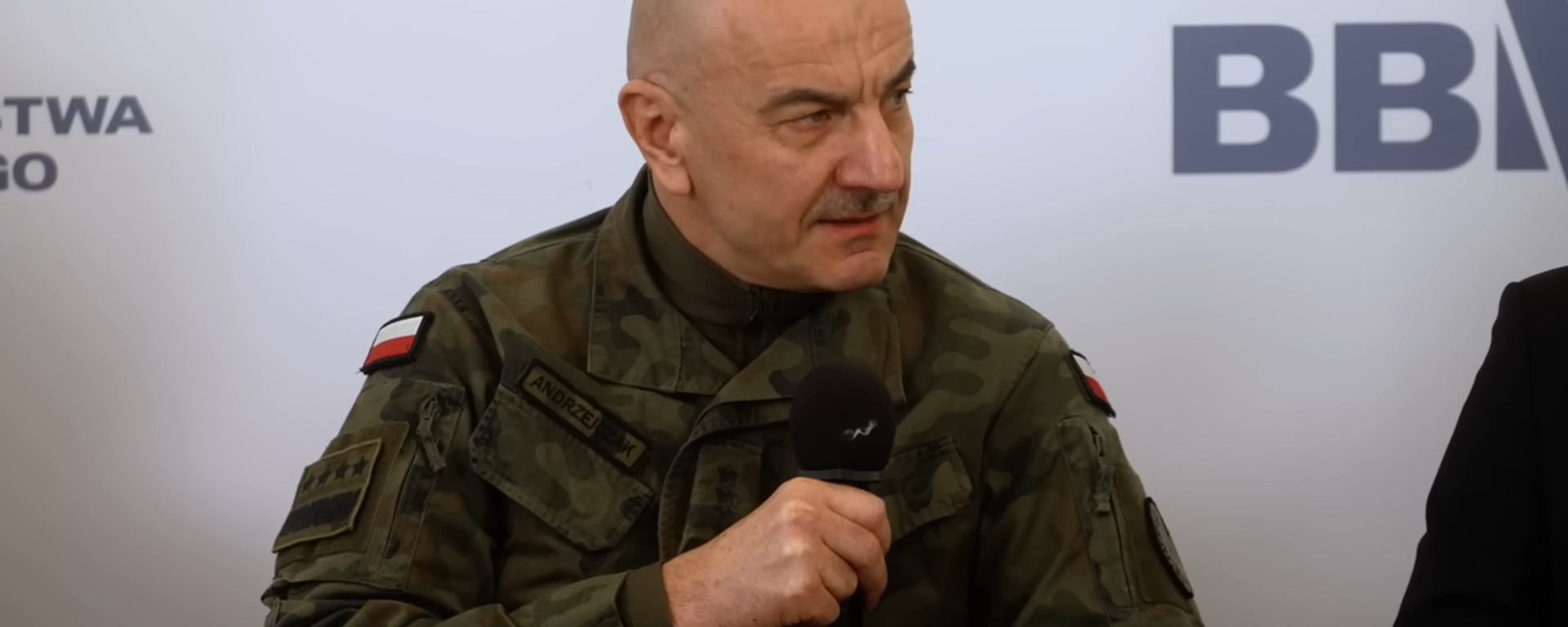https://sputnikglobe.com/20230505/wests-war-on-russia-has-made-moscow-stronger---czech-ex-military-intel-chief-1110116965.html
West's War on Russia Has Made Moscow Stronger - Czech Ex-Military Intel Chief
West's War on Russia Has Made Moscow Stronger - Czech Ex-Military Intel Chief
Sputnik International
The proxy conflict in Ukraine and the West’s sanctions ‘total war’ against Russia have so far failed to achieve their objectives, with Moscow reorienting its economic relationships toward Asia and the Global South. Meanwhile, Washington’s British and European Union allies are facing their most severe inflationary and energy price shocks in decades.
2023-05-05T11:43+0000
2023-05-05T11:43+0000
2023-05-05T11:43+0000
world
richard nixon
henry kissinger
ashraf ghani
russia
ukraine
moscow
nato
european union (eu)
mcdonald’s
https://cdn1.img.sputnikglobe.com/img/102337/24/1023372470_0:68:3086:1804_1920x0_80_0_0_9c9acd1c03bc9851caf1216eb2b506ee.jpg
The sanctions war against Moscow and the destruction of the Ukrainian "buffer" between the West and Russia has made the Russians stronger, former Czech Military Intelligence chief Petr Pelz has warned."Maybe we are harming Russia, but are we weakening it in a major way? Well, we've [actually] made it stronger. We drove China into Russia's arms, which I believe is an absolutely invincible tandem, if we don’t use nuclear weapons…So we've driven Russia and China into incredibly close relations. Poor Nixon, he must be spinning in his grave. And on top of that, India, the Middle East and Iran are joining in to a large extent as well," the former military top spy added, referring to the policy pursued in the 1970s by then-president Richard Nixon and his secretary of state, Henry Kissinger, to divide the Soviet Union and Communist China."So we've strengthened Russia. In the beginning we wanted to weaken it, but we proceeded to strengthen it, and to destroy the Ukrainian buffer," Pelz added.Commenting on the state of Ukraine today, Pelz suggested that the country "hardly exists as a state anymore" due to the extent of support and the orders it receives from the Western bloc. When it comes to peace talks, for example, what matters is not what "the Ukrainian government is thinking," but "what some key group in Washington is thinking, and what Russia is thinking," according to the former top spy.The intelligence officer also challenged the idea that the West and NATO is really even "helping" Ukraine at all by providing military support.Furthermore, the problem of the massive corruption crippling Ukraine hasn't gone anywhere, he said.Asked how the Czech Republic should behave in the current situation, the retired officer said that was a "difficult question to answer," since the country is a member of NATO and the European Union, and that even if Prague resisted, there is little it could do to change the situation on a global level."The Hungarians are trying to do something. There's Austria, which is not in NATO, but is part of the European Union, and after all are pursuing at least a slightly more independent policy. Of course, we are not in that situation – we do not have the strength to forge a completely independent path. We have to conform to our obligations and expectations to a large extent, but we don't have to be total sycophants. That would probably be enough in this situation," Pelz recommended.Pelz also pointed to the causes of the deterioration of relations between the West and Moscow, recalling that especially in the 1990s under Boris Yeltsin but even during most of President Putin’s first two terms between 2000 and 2008, Russia sought to maintain friendly relations and contacts with the West.After that, the former spy noted, the situation changed, with Russia ramping up the production of advanced missiles, and the mass production of tanks, and restructuring the military back from the small, compact brigade type to a large, Soviet-style divisions. "There is a nice lesson here that armies fight battles, but wars are won by industry and logistics," he said.Pelz comments are the latest sign of growing dissent shown among the European security establishment in relation to the NATO proxy war in Ukraine. Last week, General Rajmund Andrzejczak, the serving Chief of General Staff of the Polish Armed Forces, warned the situation does not look good for Kiev as far as its ability to hold out against Russia economically is concerned. Andrzejczak echoed Pelz' remarks that sanctions have failed to break Russia, and warned that the West has demonstrated that it does not have the military equipment and ammunition to assure a Ukrainian "victory."
https://sputnikglobe.com/20230504/pepe-escobar-us-outmatched-by-russia-china-1110095098.html
https://sputnikglobe.com/20230425/uk-gave-ukraine-thousands-of-shells-including-depleted-uranium-rounds-1109828799.html
https://sputnikglobe.com/20230416/video-protesters-rally-in-prague-against-czech-governments-economic-policies-1109578295.html
https://sputnikglobe.com/20230429/situation-does-not-look-good-for-ukraine-polands-top-general-says-1109953569.html
russia
ukraine
moscow
Sputnik International
feedback@sputniknews.com
+74956456601
MIA „Rossiya Segodnya“
2023
News
en_EN
Sputnik International
feedback@sputniknews.com
+74956456601
MIA „Rossiya Segodnya“
Sputnik International
feedback@sputniknews.com
+74956456601
MIA „Rossiya Segodnya“
czech republic, czechia, military intelligence, petr pelz, ukraine, russia, west, nato, conflict, crisis, sanctions
czech republic, czechia, military intelligence, petr pelz, ukraine, russia, west, nato, conflict, crisis, sanctions
West's War on Russia Has Made Moscow Stronger - Czech Ex-Military Intel Chief
The proxy conflict in Ukraine and the West's sanctions "total war" against Russia have so far failed to achieve their objectives, with Moscow reorienting its economic relationships toward Asia and the Global South. Meanwhile, Washington's British and European Union allies are facing their most severe inflationary and energy price shocks in decades.
The sanctions war against Moscow and the destruction of the Ukrainian "buffer" between the West and Russia has made the Russians stronger, former Czech Military Intelligence chief Petr Pelz has warned.
"To top things off, the sanctions that we as the West began to impose on Russia were a) to a large extent not completely legal from the point of view of international law, and b) completely stupid, because we shouldn't think that the largest nation on Earth, endowed with the greatest natural resource wealth, and with a history like that of the Russian people, who are willing to live in dugouts and eat grass just to somehow defend their country for the benefit of the collective, would somehow be fundamentally damaged by getting McDonald's to leave, for example – those are laughable thoughts," Pelz said in a recent interview with local radio.
"Maybe we are harming Russia, but are we weakening it in a major way? Well, we've [actually] made it stronger. We drove China into Russia's arms, which I believe is an absolutely invincible tandem, if we don’t use nuclear weapons…So we've driven Russia and China into incredibly close relations. Poor Nixon, he must be spinning in his grave. And on top of that, India, the Middle East and Iran are joining in to a large extent as well," the former military top spy added, referring to the policy pursued in the 1970s by then-president Richard Nixon and his secretary of state, Henry Kissinger, to divide the Soviet Union and Communist China.
"So we've strengthened Russia. In the beginning we wanted to weaken it, but we proceeded to strengthen it, and to destroy the Ukrainian buffer," Pelz added.
Commenting on the state of Ukraine today, Pelz suggested that the country "hardly exists as a state anymore" due to the extent of support and the orders it receives from the Western bloc. When it comes to peace talks, for example, what matters is not what "the Ukrainian government is thinking," but "what some key group in Washington is thinking, and what Russia is thinking," according to the former top spy.
The intelligence officer also challenged the idea that the West and NATO is really even "helping" Ukraine at all by providing military support.
"The best example I can think of is that Britain is supplying depleted uranium munitions there which has superior armor-piercing properties. Maybe it will cause the deaths of more Russian soldiers, by a few dozen or hundred, but it will also leave a radioactive cloud in its wake, and then deformed children will be born there, people will suffer from a higher incidence of cancers, and so on. We saw this in Iraq and Yugoslavia. There is evidence for that," he said. In light of all this, "are we helping them?" Pelz asked.
Furthermore, the problem of the massive corruption crippling Ukraine hasn't gone anywhere, he said.
"Do we really believe today that Ukraine is capable of liberating Crimea, returning Crimea to the Ukrainians? That's an absurd idea. This is such a mess, but there's nothing strange about it, since, on the one hand, Ukraine is one of the most corrupt countries in the world, and on the other, the same thing happened in Afghanistan. After all, President Ashraf Ghani was running around the airport with plastic bags filled with dollars. That's what this looks like," Pelz said.
Asked how the Czech Republic should behave in the current situation, the retired officer said that was a "difficult question to answer," since the country is a member of NATO and the European Union, and that even if Prague resisted, there is little it could do to change the situation on a global level.
"The Hungarians are trying to do something. There's Austria, which is not in NATO, but is part of the European Union, and after all are pursuing at least a slightly more independent policy. Of course, we are not in that situation – we do not have the strength to forge a completely independent path. We have to conform to our obligations and expectations to a large extent, but we don't have to be total sycophants. That would probably be enough in this situation," Pelz recommended.
Pelz also pointed to the causes of the deterioration of relations between the West and Moscow, recalling that especially in the 1990s under Boris Yeltsin but even during most of President Putin’s first two terms between 2000 and 2008, Russia sought to maintain friendly relations and contacts with the West.
"At the NATO summit in 2008, the Americans came up with the idea that both Ukraine and Georgia should join NATO. Immediately on the spot, both the French and the Germans blocked it. And that's when current CIA director William Burns, who was then ambassador to Russia, informed Washington in his famous cable [leaked by] WikiLeaks that 'Nyet means Nyet', where he wrote that having been in Russia, he had yet to come across anyone with an opinion other than it would be absolutely unacceptable for Russia for Ukraine and Georgia in NATO, even among the opposition...So Russia became very cautious, began to assert itself more. And that’s what I thought – that if there had been a ceasefire sometime in early April of last year – that Russia would have just implemented more or less what the Minsk Agreements and Security Council resolutions prescribed," Pelz said, referencing the Moscow-Kiev peace talks in the spring of 2022 which were sabotaged by the US and Britain.
After that, the former spy noted, the situation changed, with Russia ramping up the production of advanced missiles, and the mass production of tanks, and restructuring the military back from the small, compact brigade type to a large, Soviet-style divisions. "There is a nice lesson here that armies fight battles, but wars are won by industry and logistics," he said.
Pelz comments are the latest sign of growing dissent shown among the European security establishment in relation to the NATO proxy war in Ukraine. Last week, General Rajmund Andrzejczak, the serving Chief of General Staff of the Polish Armed Forces,
warned the situation does not look good for Kiev as far as its ability to hold out against Russia economically is concerned. Andrzejczak echoed Pelz' remarks that sanctions have failed to break Russia, and warned that the West has demonstrated that it does not have the military equipment and ammunition to assure a Ukrainian "victory."
